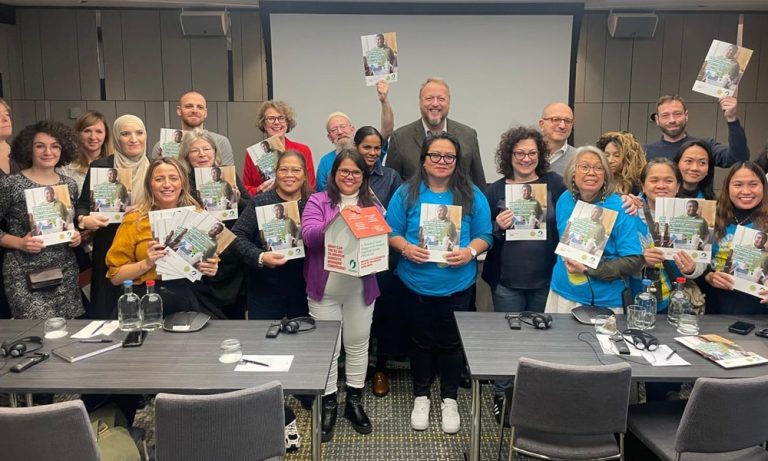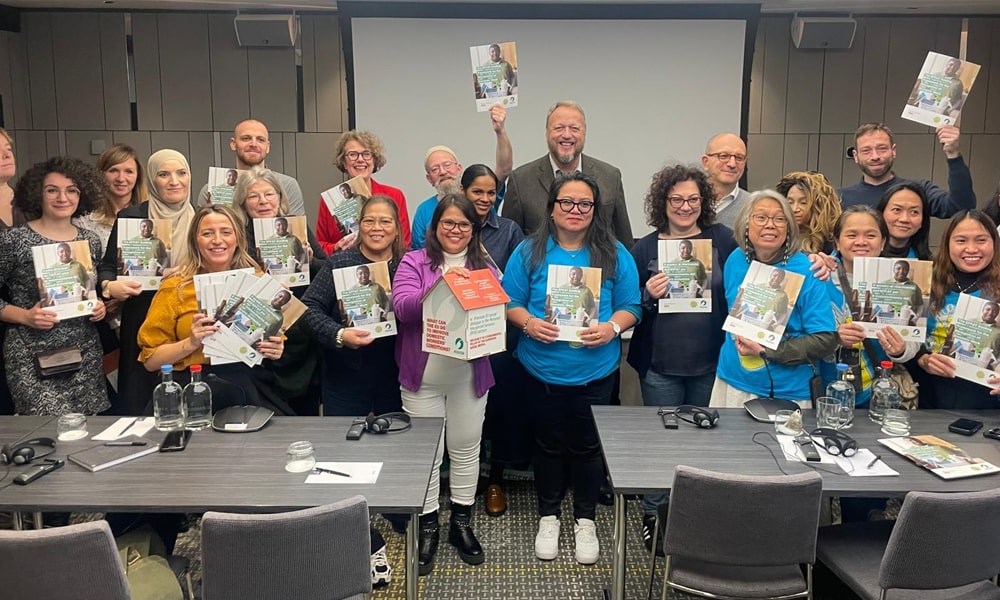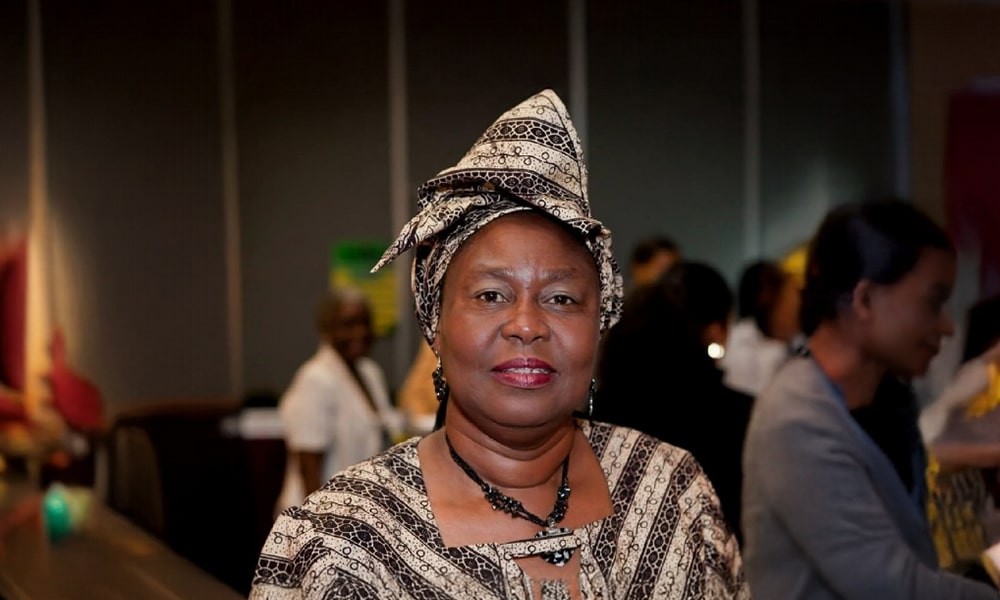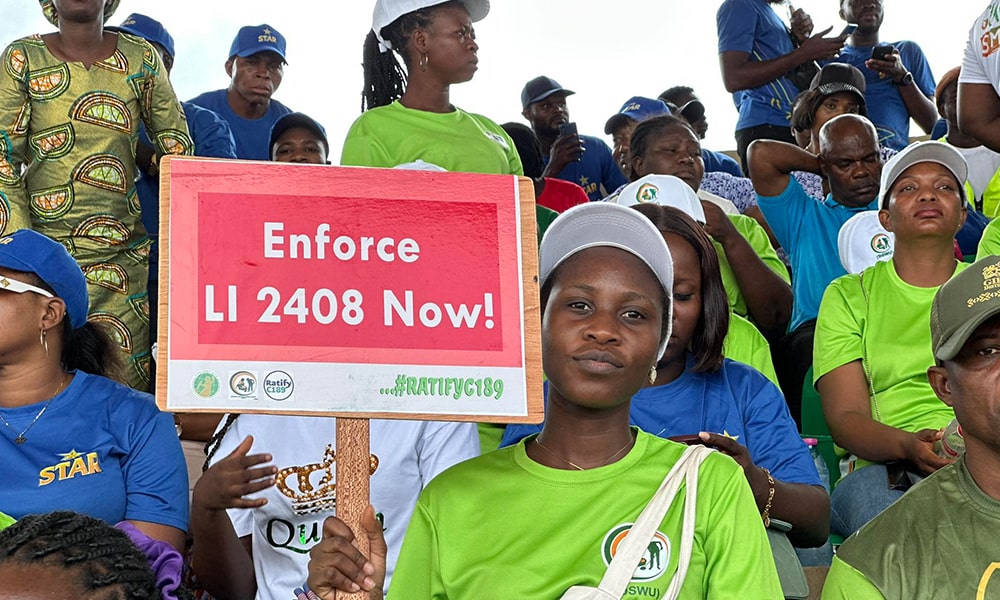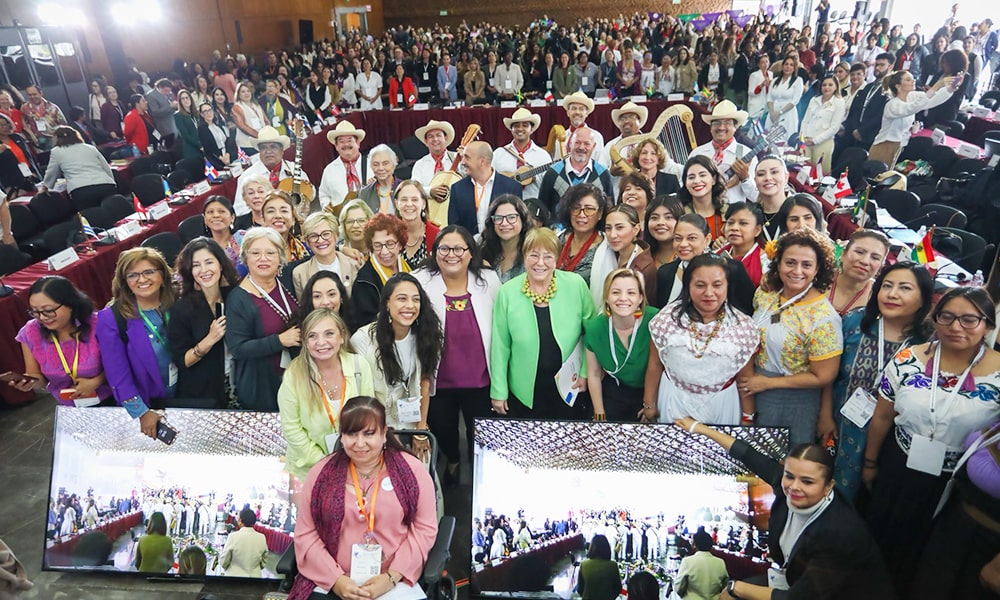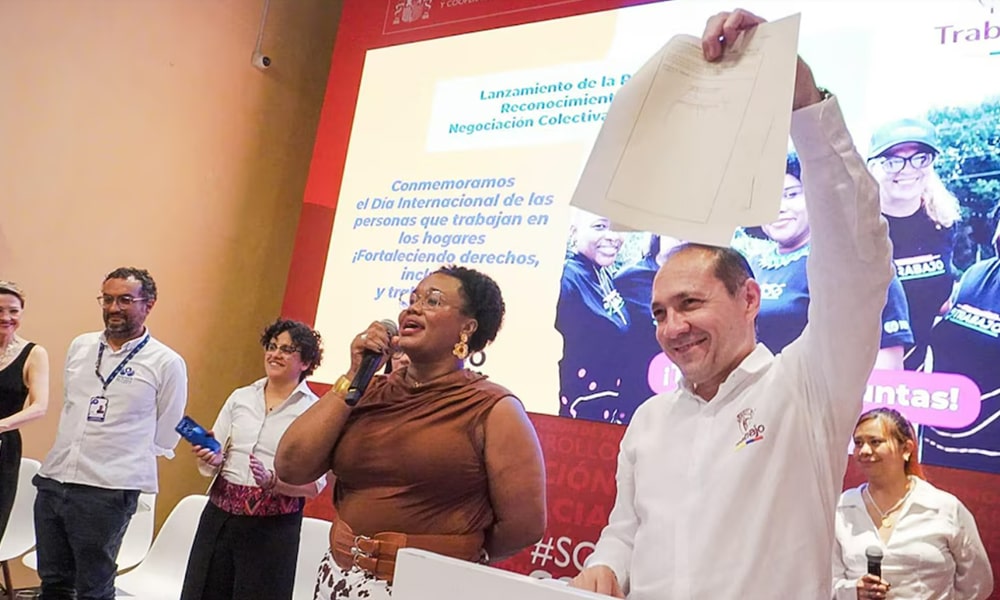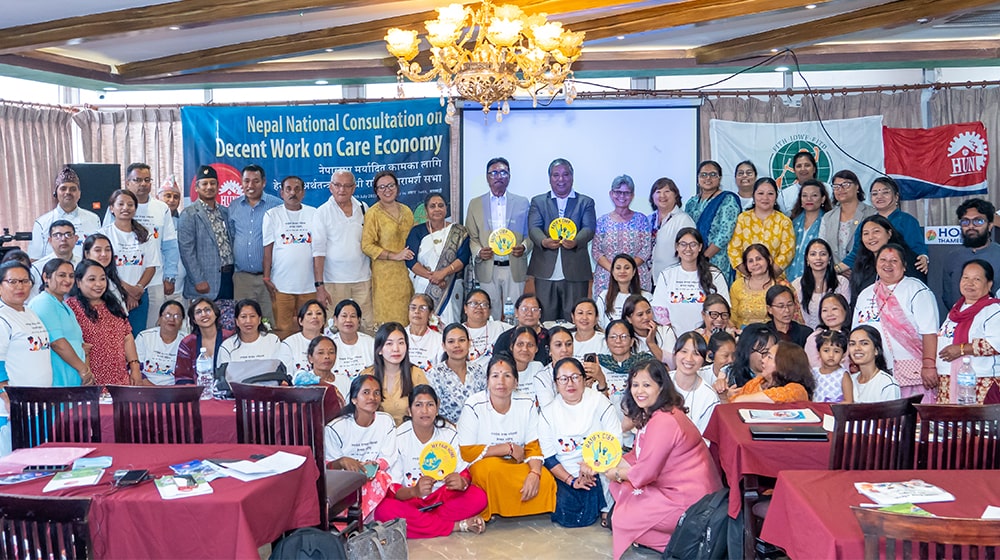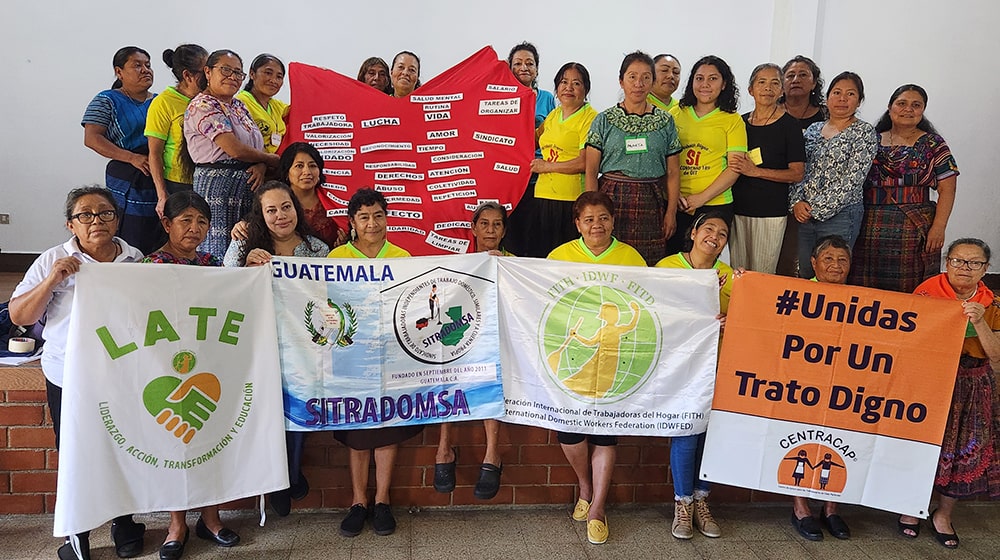
The International Domestic Workers Federation (IDWF) has launched an innovative political and union education program in Latin America: LATE – Leadership, Action, Transformation, and Education. Over the course of seven months and through both in-person and online sessions, around 300 domestic workers from 19 IDWF-affiliated organizations in 13 countries across the region will receive training aimed at strengthening their individual and organizational skills for political advocacy in defense of their rights.
The LATE program focuses on the collective construction of knowledge for union action, encouraging participants to critically analyze the realities faced by domestic workers in their respective cultural and sociopolitical contexts, as well as to reflect on how they view themselves, their organizations, and the movement as historical agents capable of transforming those realities. In line with the IDWF’s strategic plan and Theory of Change, the goal is for domestic workers to have a voice and representation in decision-making spaces, public policy design, and debates on all matters related to domestic work in their countries, including the care economy, labor migration, platform work, and violence and harassment in the world of work, among others.
The fight for decent work in Latin America
Domestic workers in Latin America have been organizing and mobilizing for over a century. Their regional movement has led the way in political self-representation and in advancing labor protections, as Latin American domestic workers have always spoken for themselves directly to those in positions of power, securing significant legislative wins over the past 15 years. Their most powerful tool is ILO Convention 189, which sets out basic labor standards for the sector on an equal footing with other categories of workers.
C189 was adopted in 2011 and has so far been ratified by 39 countries worldwide, 18 of which are in Latin America. Drawing on this instrument, domestic workers in the region have pushed for key legal reforms in their countries. However, there is still a wide gap between the rights gained and the lived reality of domestic workers on the ground: domestic work remains one of the most unprotected sectors in the region, with over 72% of domestic workers in informal employment. This means they lack legal protection, social security coverage, and fundamental rights at work. They often earn very low wages, endure long working hours, and are exposed to abuse, violence, and harassment.
These major decent work deficits are the result of a widespread failure to recognize domestic work as “real” work, both in law and in practice. From a capitalist and patriarchal perspective, domestic and care work—naturally assigned to women from the most disadvantaged groups—is not seen as productive or socially valuable, despite being essential to sustaining life and the labor force. As a result, households are often not considered economic units or workplaces, and employers are not perceived—and do not see themselves—as employers. This misconception has served as an excuse to justify the systemic exploitation of domestic workers and their exclusion from the protections and rights they are entitled to as wage workers.
In Latin America, domestic workers have historically faced multiple and intersecting forms of discrimination—on the basis of being Black, Indigenous, migrant, poor, single mothers, among others—that are rooted in colonialism and slavery. The link between these systems of oppression and the devaluation of their labor is undeniable. The regional movement has clearly understood these dimensions of its current reality and has embraced a range of creative strategies to win rights and gain recognition, harnessing all of its collective power and resilience. Today, in a regional context with major obstacles to adopting new legal protections and enforcing those already in place, building transformative leadership is particularly relevant.
Education for change
The LATE program was designed to strengthen the technical and political capacities of domestic workers so they can negotiate key aspects of their working conditions, access institutionalized spaces for social dialogue, and effectively advance their demands. A movement made up of strong leaders and solid organizations is capable of countering the effects of systemic oppression and exclusion that have long marginalized them, driving both legal and cultural change to achieve decent work, dignified lives, and the recognition they deserve as pillars of the care economy.
“LATE is our response to the urgent need to strengthen and expand our presence as a sector, through well-prepared leaders who can mobilize, organize, and drive the deep transformations we need—especially in a region as unequal as Latin America.”
Ruth Díaz, IDWF Executive Committee Member for Latin America

